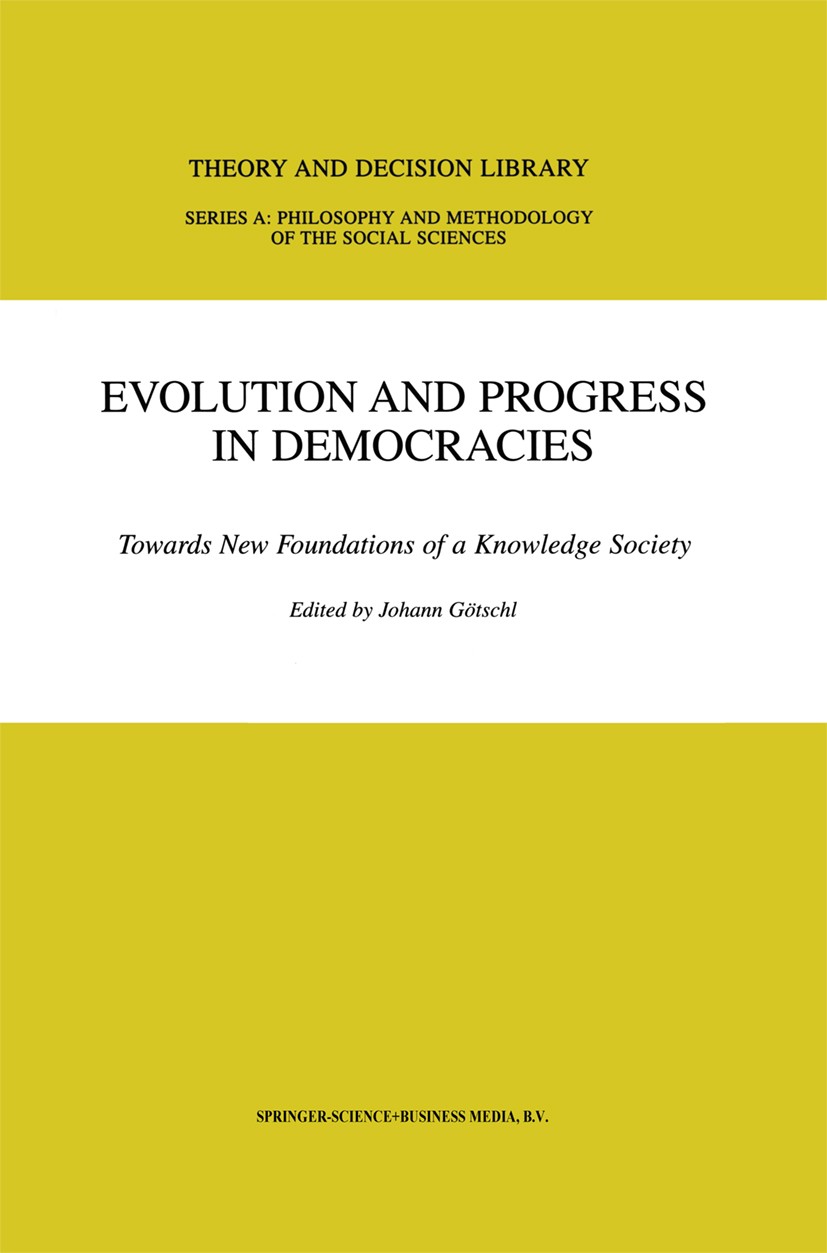| 書目名稱 | Evolution and Progress in Democracies | | 副標(biāo)題 | Towards New Foundati | | 編輯 | Johann G?tschl | | 視頻video | http://file.papertrans.cn/318/317677/317677.mp4 | | 叢書名稱 | Theory and Decision Library A: | | 圖書封面 |  | | 描述 | In a ground-breaking series of articles, one of them written bya Nobel Laureate, this volume demonstrates the evolutionary dynamicand the transformation of today‘s democratic societies intoscientific-democratic societies. It highlights the progress ofmodeling individual and societal evaluation by neo-Bayesian utilitytheory. It shows how social learning and collective opinion formationwork, and how democracies cope with randomness caused by randomizers.Nonlinear `evolution equations‘ and serial stochastic matrices ofevolutionary game theory allow us to optimally compute possible serialevolutionary solutions of societal conflicts. But in democraciesprogress can be defined as any positive, gradual, innovative andcreative change of culturally used, transmitted and stored mentifacts(models, theories), sociofacts (customs, opinions), artifacts andtechnifacts, within and across generations. The most important changesare caused, besides randomness, by conflict solutions and theirrealizations by citizens who follow democratic laws. These lawscorrespond to the extended Pareto principle, a supreme, socioethicaldemocratic rule. According to this principle, progress is any increasein the indivi | | 出版日期 | Book 2001 | | 關(guān)鍵詞 | Evaluation; Evolution; Generation; Transformation; decision making; decision theory; economics; game theory | | 版次 | 1 | | doi | https://doi.org/10.1007/978-94-017-1504-1 | | isbn_softcover | 978-90-481-5842-3 | | isbn_ebook | 978-94-017-1504-1Series ISSN 0921-3384 Series E-ISSN 2352-2119 | | issn_series | 0921-3384 | | copyright | Springer Science+Business Media Dordrecht 2001 |
The information of publication is updating

|
|
 |Archiver|手機(jī)版|小黑屋|
派博傳思國(guó)際
( 京公網(wǎng)安備110108008328)
GMT+8, 2025-10-16 12:35
|Archiver|手機(jī)版|小黑屋|
派博傳思國(guó)際
( 京公網(wǎng)安備110108008328)
GMT+8, 2025-10-16 12:35


